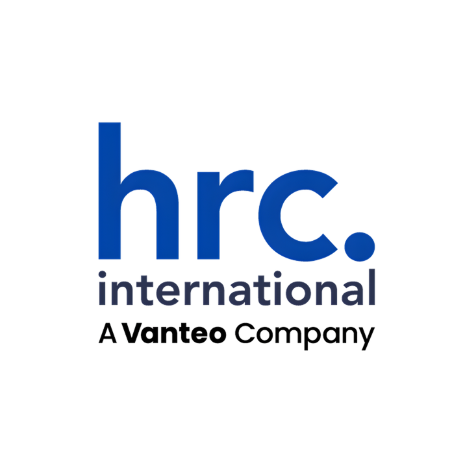J-1 Visa Program
Purpose of The
J-1 Visa Program
J-1 Visa Bridge USA
Goal #1
Goal #2
Goal #3
Goal #4

J-1 Visa Bridge USA
 The purpose of the Exchange Visitor Program is to provide foreign nationals with opportunities to participate in educational and cultural programs in the United States and return home to share their experiences, and to encourage Americans to participate in educational and cultural programs in other countries. Exchange visitors enter the United States on a J visa [22 CFR 62.1(b)].
The purpose of the Exchange Visitor Program is to provide foreign nationals with opportunities to participate in educational and cultural programs in the United States and return home to share their experiences, and to encourage Americans to participate in educational and cultural programs in other countries. Exchange visitors enter the United States on a J visa [22 CFR 62.1(b)].
Below is an explanation on the relevance of HRC’s proposed program to the Department of State’s national security and foreign policy priorities. HRC utilized the Bureau of Educational and Cultural Affairs (ECA) Functional Bureau Strategy (July 23, 2018) as a basis for its explanation. This strategy report identifies the following four foreign policy goals:
- Promote American leadership through people-to-people exchanges that advance American foreign policy objectives and deepen the mutual understanding that underpins U.S. relationships with foreign countries.
- Renew America’s competitive advantage for sustained economic growth by increasing the global skills of Americans and expanding the reach of U.S. businesses and institutions.
- Counter foreign government disinformation and foster alternatives to radicalization through international exchange programs.
- Promote American values through professional, educational, and cultural programs that bolster democratic principles and encourage strong civil society institutions, human rights, and independent media.

Explanation on the relevance of HRC’s proposed program to ECA foreign policy goal #1
Goal: Promote American leadership through people-to-people exchanges that advance American foreign policy objectives and deepen the mutual understanding that underpins U.S. relationships with foreign countries.
HRC’s proposed program will help deepen mutual understanding between the United States and foreign populations by selecting a very diverse pool of individuals for participation in its programs. In its 30 years in existence, HRC has placed young people from over 80 countries in its exchange programs. HRC program participants are typically 19-26 years of age, emerging into their professional careers with a slight majority of females. These program participants interact with Americans on a daily basis and forge life-changing professional and personal contacts. HRC regularly travels to Central and South America, Africa, Europe, Middle East and Asia to identify participants for its programs. During these travels, HRC always organizes “meet and greets” for potential program participants and for program alumni. Even though some of these alumni participated in HRC’s exchange program many years ago, they still express a deep understanding of and appreciation for the United States and its people. Participation in the program has caused them to be open to understanding different perspectives, opinions and viewpoints. Many of these past program participants have now grown into leadership positions in their home countries, allowing them to make a concrete impact on sharing their understanding of American values with others. Likewise, many host organizations main program supervisors, primary phase supervisors and other workers report that they are still in contact with past HRC program participants. This proves that the relationships and friendships forged during exchange programs really do last a lifetime and help deepen understanding between Americans and foreign populations.

Explanation on the relevance of HRC’s proposed program to ECA foreign policy goal #2
Goal: Renew America’s competitive advantage for sustained economic growth by increasing the global skills of Americans, bridging the skills gaps that are keeping some workers from jobs, and expand the reach of U.S. businesses and institutions.
HRC’s proposed program will help renew America’s competitive advantage in various ways. Being part of an international organization, HRC is uniquely positioned to offer a range of cultural opportunities for Americans wishing to participate in an exchange program abroad. Through its expansive network of host organizations, educational institutions and third-party agents around the world, HRC offers Americans the opportunity to study abroad or participate in short courses and participate in internship and on-the-job training programs. Through these programs, Americans will be able to work in the global economy, acquire foreign language skills, learn about foreign cultures and build and develop international networks. By increasing the global skills of American workers, they will be able to develop themselves professionally and be better positioned for future success.
HRC’s proposed program will also help renew America’s competitive advantage by internationalizing American companies, especially small and medium sized businesses. These small and medium business do not always have access to international markets and expertise. HRC acknowledges that not every American worker will have the opportunity to work or study abroad. But, by encouraging US businesses and educational institutions to host exchange visitors, a similar level of increasing global competitiveness can be achieved for American workers. By hosting exchange visitors, American workers will be exposed to foreign perspectives, viewpoints, culture and ideas. Moreover, American workers will be exposed to International trends, global skills and new techniques. Through exchange visitors, they will be able to establish international networks, not only with the exchange visitor, but with their foreign employers, colleagues and friends. Internationalizing US American companies and educational institutions will therefore increase the global skills of American workers. In the process, they will be able to develop themselves professionally and better position themselves for future success.
Because HRC has operated exchange programs for 30 years, it has firsthand experience in internationalizing US businesses and increasing the competitive advantage of American workers

Explanation of the relevance of HRC’s proposed program to ECA foreign policy goal #3
Goal: Counter foreign government disinformation and foster alternatives to radicalization through international exchange programs.
HRC proposed program helps counter foreign government disinformation by exposing exchange visitors to a free and just society, with free speech, a free press and a crucial role rule of law. When exchange visitors participate in HRC’s proposed program, they will live and work in a society where free speech and free press are key drivers for people to be informed and to be engaged in a free democracy. Exchange visitors will experience that government information is fact-checked by the press against science, technology and facts. They will experience that Americans are critical and question information and actions of government at all levels. Developing these critical-thinking skills will be a valuable asset to exchange visitors when they return home, especially to those countries where government disinformation and potential radicalization are a risk. They will help the exchange visitor resist disinformation, or at least critically assess situations of political turmoil that happens in so many places around the world. The personal and professional relationships that Exchange Visitors develop with Americans become even more important when relations between governments worsen. It is not just the exchange visitor themselves who will develop these critical-thinking skills, but they will be able to share these skills with family, friends and colleagues back home.

Explanation of the relevance of HRC’s proposed program to ECA foreign policy goal #4
Goal: Promote American values through professional, educational, and cultural programs that bolster democratic principles, strengthen the rule of law, and encourage strong civil society institutions, human rights, and independent media.
HRC’s proposed program exposes exchange visitors to such uniquely American values as free speech, free press, inclusivity, equality and individualism. By living and working in communities, by building friendships with Americans and by participating in daily American life, exchange visitors will learn these values on a daily basis. Through HRC’s extensive and diverse pool of candidates, young foreign nationals from over 80 countries have participated in HRC’s exchange programs. They include individuals from Europe, the Middle East, the African continent, Asia and South America. Most program participants are 19-26 years of age with a majority of female participation. Many program participants are emerging into professional and academic careers and at a point in their lives where they are able to make an increased impact. These young individuals are more connected than ever before. It is also a group that wants to be heard more than ever before.
Participating in our programs, Exchange Visitors observe and experience American values and can share those values through professional and personal networks in their home country. Building this network of young, foreign nationals sympathetic to American life and culture will help promote American values and interest in the long term.
